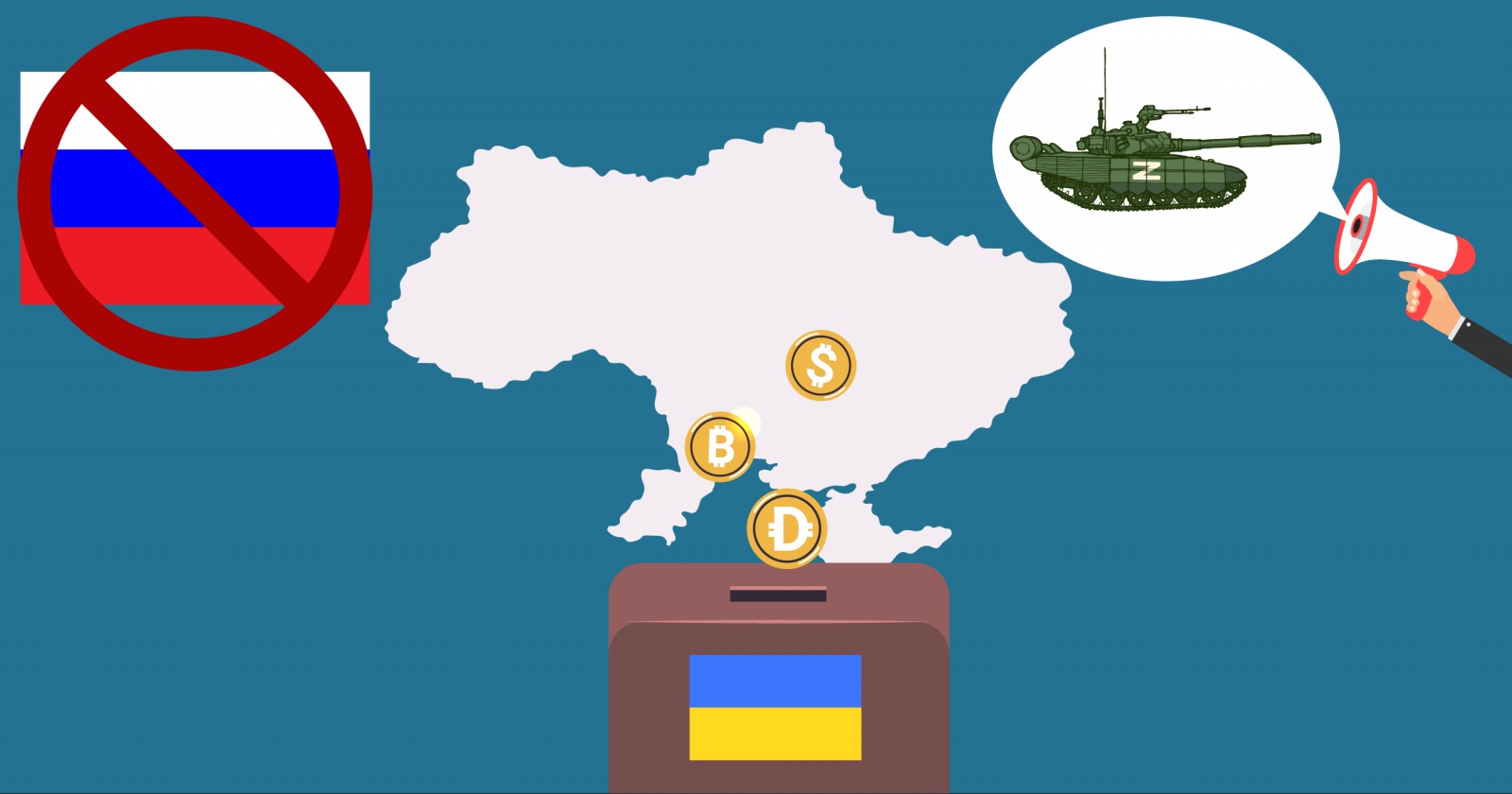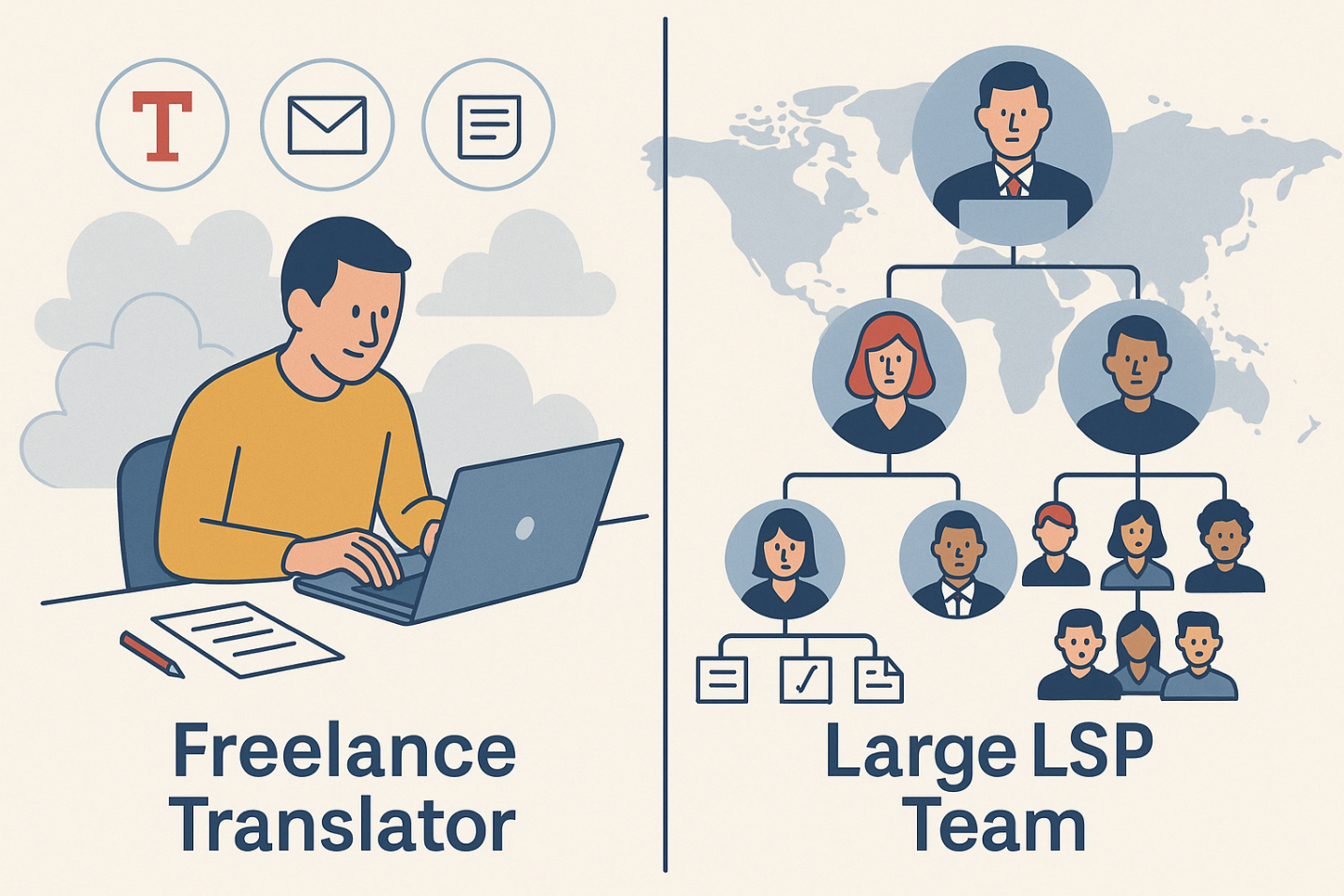On February 24, 2022, the lives of all Ukrainians changed. The war began. Former problems suddenly became ridiculous. Our daily routines, our leisure time, our business—it all changed. In fact, we changed as well.
In this article, we will tell how the war has impacted business activities in our company and the Ukrainian translation market in general.

The first shock
At the end of 2021, red flags started showing, indicating that a major armed conflict may be unleashed on Ukraine. As we moved into 2022, the tension only increased. Russia was concentrating an ominous amount of military equipment along the Ukrainian borders. Some countries even evacuated their embassy employees from Kyiv. Behind their stiff smiles, Russian officials were claiming that those were standard military exercises, absolutely nothing to worry about.
Life in Ukraine continued on: people were working, going to movie theaters, watching the Winter Olympic Games, and cheering on the Ukrainian athletes. Most people thought that this was another bluff, an escalation with the aim of achieving certain political goals. Russia had done this before.
Two weeks before the war began, I went to a translation conference in the USA. As soon as people there heard that I was from Ukraine, many of them, from business partners to cashiers in stores, asked if a war was coming. I answered that I highly doubt it; it would be beyond stupid, suicidal even. A civilized country can’t start a full-scale tank war in the 21st century, it’s simply unimaginable.
But start it they did. Like all Ukrainian businesses, we were not prepared for it neither morally nor organizationally. Early in the morning of February 24, we woke up to the roar of fighter jets and the first explosions. It was a huge shock.
Naturally, work immediately took second stage. The office emptied out. Our employees were frantically trying to escape from Kyiv. Those who made it out quickly settled into their new home, but many others ended up stuck in kilometer-long traffic jams leading out of the city. We lost contact with many of them. Enemy armored personnel carriers were breaking through into the northern districts of Kyiv.
Fortunately, no one made the fatal mistake of moving to Bucha orIrpin, although back then it felt like the suburbs around Kyiv would be much safer than the city itself. But as we have seen since, this was not the case. Back then we had no idea how the siege of a million-strong city would pan out and from what direction the Russians would come. Have you ever wondered which side of your city would be best for tanks to attack? We haven’t either.
Some of our employees found themselves in the occupied areas during the very first day of the war. There was no way to contact them; we wrote messages on all the messenger apps, called and texted them. Some employees got out of the city but were without Internet access. We spent hours in bomb shelters; some people would even sleep in them. Before February 24, we didn’t even know where these shelters were.
Would you know where to run if a shell exploded near your house? What to take, and most importantly, what not to take with you? How to distinguish a cannon shot from the explosion of an incoming projectile? How to quickly find a cat that runs frightened to the farthest corner of the apartment to hide when the bombs start falling, and what to do with it? Unfortunately, for many of us, these were questions that we had to find answers to.
As you would expect, in these first days, the whole of Ukraine was in complete chaos. Contradictory news pieces were coming at us from all directions, scarier with every time. Something terrible was clearly happening, and we had no idea what was going to happen the next day.
We were under so much stress. But by some miracle, we managed to continue working in these conditions. As did the whole of Ukraine.
Two weeks later, the initial shock had passed, and we began to adapt to what is now called the “new normal.”

The difficulties of strategic planning
It was clear from the onset that it would be impossible to build any long-term plans (it is now clear that the people who initiated this war did not have any long-term plans either). Previously it was possible to strategize with a planning horizon of several years, but with the outbreak of the war this horizon has narrowed to a few days.
We have to react to events as they happen. It is very difficult to think about the distant future when we don’t even know what will happen tomorrow. How can you possibly make plans when you hear about atrocities committed just a couple of dozen kilometers from your home, when you are working from a bomb shelter, when every ten minutes your hand is reaching out to get the latest news (we now know what doomscrolling is).
As would be expected, we focused on addressing the immediate problems and concentrated on the here and now.

Customer relations
Despite the war, it was critically important for us to retain our customers. So we made sure to inform them all that we were still open for work, and that was not going to change. This was also important from the point of view of employee safety: if orders dried up, they would have to look for much less secure ways of earning money than remote work on a computer.
Fortunately, most of our customers were sympathetic to our situation and supported us. Some even provided us with free services or paid us bonuses. We are very grateful to them for this help and that we can continue working together.
Our customers—translation agencies—shared some incredible business stories with us:
“After the war started, a customer who had for years refused to raise the rates suddenly and unilaterally raised them himself!
There was another customer. We had been acquainted for several years thanks to translation conferences but had not found a way to start working with him. He didn’t believe that we know Russian, ‘But you’re from Ukraine!’. Suddenly, he reached us himself and handed his Russian projects over to us.
Another customer, on the contrary, stopped giving us orders. As it turned out later, he thought that we were a Russian translation agency, ‘But you translate into Russian!’. He resumed cooperation with us after we sent him documents confirming that we are a Ukrainian company.”

Participation in the war
The business community in Ukraine has not remained a passive observer in this war. You can’t just make money when someone is making the ultimate sacrifice on the front lines so that you have the freedom to run your business. Ukrainian companies joined the common struggle. For example,
Termination of work with partners from Russia. It is not just unethical to finance those whose taxes go to the aggressor’s public purse, it is in fact criminal. Therefore, we had to immediately cut off long-term ties with Russian partners, despite the good relations we had with them and consequent losses. Without doing this, we would have no moral right to demand that our partners in Europe and America do the same. Some time later, the Ukrainian government enshrined this ban into law.
Information warfare. We saw that not everyone was aware of the scale of this war and the threat it poses to the entire civilized world, especially given the huge investment of the aggressor country in its propaganda machine. So Ukrainian companies began to convey this information publicly to their partners.
Financial support for the army. Ukrainian companies are donating a significant proportion of their profits to support the country’s armed forces by sending money to volunteer organizations or directly to the Ministry of Defense. Remember: by working with a Ukrainian company, you are helping the Ukrainian army. At the very least, the company pays taxes in the country; and it’s also possible that some of the company’s profits will be donated to the army.
Dynamics of translation orders
Ukrainian translation companies work with both Ukrainian and Russian. And in the first months of the war, the percentage of Ukrainian language orders increased. This is because the sanctions mean that foreign trade in Russia is plummeting and there is less demand for translations into Russian. The opposite is true with Ukrainian: people are using it more and more, and it is gaining importance in international business.
Many customers have stopped working with Russian companies and are ordering their translations into Russian from Ukrainians. Some people are doing this because of the possible impact of the sanctions, while others have taken this route simply because they believe it is the right thing to do.
A few months since the beginning of the war
At the time of writing this article, the war is in its fourth month. Now we can see that it is not going to end any time soon. But Ukrainian companies have adapted to the new conditions and their doors remain open for business.
The translation and localization industry has been more fortunate than many others in Ukraine, primarily due to the fact that translation companies have almost no tangible assets, except perhaps computers. The main asset of any service company is people, and they have managed to settle in relatively safe locations and continue working.
Offices are now even more deserted than during the peaceful time of the coronavirus lockdowns. But this emptiness is deceptive. The demand for translation into Ukrainian has increased dramatically. Millions of refugees need it, and more and more companies are localizing their products for the Ukrainian market, with the demand for this among Ukrainian consumers increasing.
And we are sure that when the war ends and the economy recovers, the Ukrainian translation industry will experience significant growth. So despite the difficult times, we are looking to the future with optimism.

.png)

.png)

